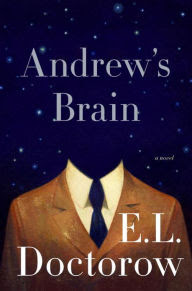Elliot Ackerman is a writer based out of Istanbul. His fiction and essays have appeared in
The New Yorker,
The Atlantic,
The New Republic, and
Ecotone among others. He is also a contributor to
The Daily Beast, and a member of the Council on Foreign Relations. He served as a White House Fellow in the Obama Administration. Prior to this, he spent eight years in the military as both an infantry and special operations officer.

Ackerman is a decorated veteran, having earned a Silver Star and Purple Heart for his role leading a Rifle Platoon in the November 2004 Battle of Fallujah and a Bronze Star for Valor while leading a Marine Corps Special Operations Team in Afghanistan in 2008.
From Ackerman's Q & A about his debut novel,
Green on Blue, with Phil Klay at The Rumpus:
The Rumpus: Of all the fiction being produced by the veterans of Iraq and Afghanistan, yours makes what is probably the most startling leap with its choice of narrator. Why did you choose to write from [Afghan boy turned soldier] Aziz’s perspective?
Elliot Ackerman: I spent a lot of time in Afghanistan, serving exclusively as an advisor to Afghan military units. The dedication is “For Ali and Big Cheese, who were my friends.” These were two Afghan soldiers I was pretty tight with.
As an advisor, I went to war with these guys, fought alongside them. Coming home, my war buddies weren’t guys I could find on Facebook, or call up to get beers with at the local VFW, they were trapped in Afghanistan’s elliptical conflict. I’m never going to hear from those guys again. So I wanted to create a rendering of their world. To try to show how they lived and how they made their decisions.
I came home and I saw the way Afghans are portrayed: they’re corrupt, they steal money, they’ll stab you in the back, they’re all high on opium all the time.
None of the nuance ever gets conveyed. So I wanted to take an action which, when you first hear about it, sounds completely reprehensible—a ‘green on blue’ attack, an Afghan soldier trained by Americans shoots him in the back. You see it in the media all the time. I wanted to roll that back and take the reader on a journey such that, by the time that action is happening at the end of the book, not only will you see why he does that at the end, but you will actually see why he...[read on]
The Page 69 Test: Green on Blue.
Writers Read: Elliot Ackerman.
My Book, The Movie: Green on Blue.
--Marshal Zeringue
 J. Ryan Stradal's new novel is Kitchens of the Great Midwest.
J. Ryan Stradal's new novel is Kitchens of the Great Midwest.

























